
Φεβ 23, 2023 | Ανακοινώσεις, Ανακοινώσεις Γυμνάσιο, Λύκειο, Εκπαιδευτικές Επισκέψεις, Καινοτόμες Δράσεις, ΣΗΜΑΝΤΙΚΕΣ Ανακοινώσεις
Κάθε χρόνο μαθητές/τριες Λυκείου συμμετέχουν σε μαθήματα Masterclass με σκοπό να λύσουν τα αινίγματα της φυσικής των σωματιδίων. Ομιλίες από ενεργούς ερευνητές-επιστήμονες επεξηγούν και αναλύουν τομείς και μεθόδους της βασικής έρευνας που αφορούν τα στοιχειώδη σωματίδια και τις μεταξύ τους δυνάμεις, δίνοντας την δυνατότητα στους/στις ίδιους/ες τους/τις μαθητές/τριες να επεξεργαστούν πραγματικά πειραματικά δεδομένα από πειράματα φυσικής σωματιδίων. Στο τέλος της ημέρας, όπως γίνεται σε κάθε διεθνή συνεργασία, οι συμμετέχοντες/ουσες μαθητές/τριες συνδέονται, μέσω διαδικτύου, και συζητούν τα αποτελέσματά τους και την εμπειρία τους.
Την Τετάρτη 22 Φεβρουαρίου 2023 πραγματοποιήθηκε δια ζώσης ημερίδα σωματιδιακής φυσικής Μasterclass στον χώρο της Αμερικάνικης Γεωργικής Σχολής υπό την αιγίδα των ΕΚΦΕ Κέντρου και Τούμπας. Στο πρωινό τμήμα της ημερίδας οι μαθητές/τριες είχαν την ευκαιρία να παρακολουθήσουν ομιλίες από διακεκριμένους επιστήμονες που υλοποιούν πειράματα στο CERN, να υποβάλλουν τις ερωτήσεις τους και να πραγματοποιήσουν μια εικονική επίσκεψη στους χώρους του πειράματος ALICE του DATA CENTER του CERN. Τo απόγευμα, στο εργαστηριακό μέρος, οι μαθητές/τριες πραγματοποίησαν ανάλυση δεδομένων από το πείραμα ALICE για την αναζήτηση στοιχειωδών σωματιδίων και τη συλλογή αποτελεσμάτων. Τον συντονισμό είχε η Δρ.Δέσποινα Χατζηφωτιάδου, ερευνήτρια του CERN. Ακολούθησε διεθνής τηλεδιάσκεψη με άλλους/ες μαθητές/τριες για την αποτίμηση της δράσης αλλά και τον σχεδιασμό μελλοντικών δράσεων από το CERN.
Την ημερίδα παρακολούθησαν οι μαθητές της Β΄ Λυκείου Ιωάννης Γαλαμάτης, Παντελεήμων Ζάνης, Δημήτριος Πετρίδης και Δημήτριος Στολτίδης .
Συνοδοί εκπαιδευτικοί ήταν η Αλεξάνδρα Νικολαΐδου και Γεώργιος Τουμανίδης, Φυσικοί του σχολείου μας.

Διαβάστε Περισσότερα
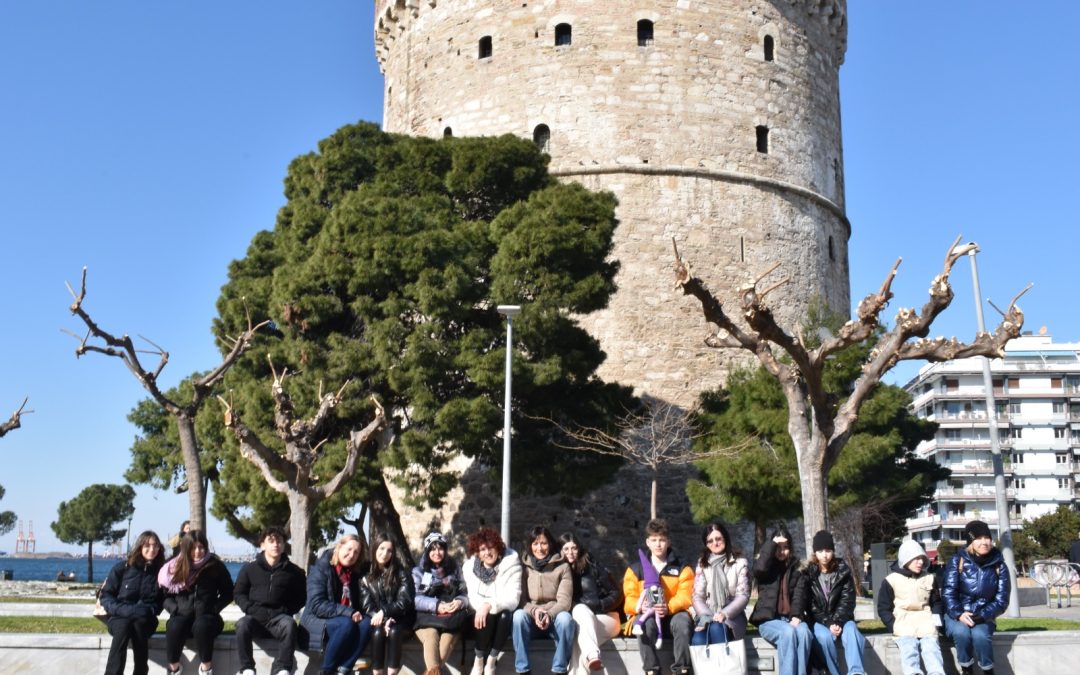
Φεβ 17, 2023 | Δράσεις Δημοτικό, Ευρωπαϊκά Προγράμματα
In the context of the European program Erasmus+ 2020, Action KA229 – Exchange Partnerships between Schools, in the Exchange of Good Practices sector, with code number KA229-0D59C3D4 and title Active Europeans for Active Citizenship, funded by IKY, the Elementary School of the Experimental School of the University of Thessaloniki, hosted the partners from Italy, Poland and Romania the time 6 to 10 February 2023 at the fourth mobility of the program.

During the first day of the 4th mobility of Deep European Cul-tour that took place in Thessaloniki in the Experimental School of Aristotle’s University of Thessaloniki during 6-10 February 2023, Greek students presented a performance titled: “Drama Queens” to teachers and students from Poland, Italy, and Romania. The story unfolds a huge part of Greece’s Cultural Heritage: the beginnings and the evolution of Greek tragedy and Comedy in Greece. Greek students also saluted the participant countries in their language and song melodies from Macedonia. The first day ended with a professional tour of the Monuments and sightseeing of Thessaloniki.
The members of the Drama Club of Thessaloniki’s experimental primary school organized and rehearsed an innovative performance in the English language combining Literature, music, dance, poetry and philosophy in order to present to all the hosts of the Erasmus program, the history and the evolution of Drama in antiquity whilst how was invented and conceived the idea of performing in Ancient Athens from 700 B.C. till 534 B.C. and the evolution of the Theatre through the tragic poets: Aeschylus, Sophocles, Euripides and the comic poet Aristophanes. The students were taught the history of theatre in Ancient Athens as a fairy tale and then they have chosen interesting parts to rehearse and perform. The content of the presentation included narration in English, dance, and prose (the narrator was a student of K-12 -a native speaker of English- and through the role of Dionysus presented the Philosophy of Drama and what is tragic.). Meanwhile, his narration was enriched by other students from the Drama Club who presented how it works Chorus in Greek tragedy and abstracts from Antigone of Sophocles and Lysistrata of Aristophanes. This team of students “were inspired” and excited as maenads (frantic women) from the Dionysus spirit, the God of transformation and ecstasy.
This presentation had a positive impact on all these students who took part in this procedure, but it was interesting as well for the viewers because they watched (in brief) an interesting part of Greek Cultural Heritage which is Ancient Drama and Theatre generally and had the chance to compare it with their own (maybe they found similarities, influences and differences). The activity presented was an extraordinary project and certainly not integrated into the curriculum of our school, but it consists of a good idea for the future the ability to perform in the English language (and to present even with subtitles) in such circumstances giving our students the motivation to improve their English and their acting skills. Furthermore, they felt like active members of the school community by participating in this project because (like they said) they felt responsible for presenting a serious part of Greek Antiquity and Culture.

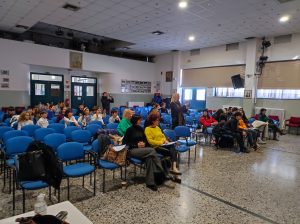

The kids of 1st grade that sang traditional local songs and saluted in the languages of the countries their school host was an entertaining experience to conceive the idea of multiculturalism and the respectful idea of Greek Cultural Heritage.
During the second day of Erasmus+ mobility “Deep European CulTour“ in Thessaloniki, teachers and students from partner countries (Italy, Poland, Romania) visited Eduact-action for education. Adult participants and youngsters had the opportunity to develop, enhance and acquire key competencies and skills relevant to STEM education and training through innovative curricula and pedagogy. These skills and competencies help our target groups and beneficiaries to be better prepared and equipped for future educational and professional chances, always with a view to the new digital era that is upon us and the fourth Industrial Revolution. The course utilized the LEGO® Education SPIKE™ Prime hardware and software and it was best suited for teachers and students with little or no programming experience who would like to learn both the fundamentals of robot programming and pedagogy associated with the accompanying STEM concepts. This LEGO SPIKE Prime Training course focused on learning how to program the LEGO Education SPIKE™ Prime robot using the Scratch-based programming software. Our mission was to inspire students and teachers in robotics! Partner countries grouped together in groups of 3 (1 x SPIKE Prime) and designed their own dancing robot. Programmed the robot to move and dance to their chosen Greek folk music and host a dance competition.

As an outcome, Lego Spike has allowed students and teachers to grapple with questions of sensor accuracy, motor latency, response times and priorities without having to have extensive experience in circuit design, assembly-level programming or in artificial intelligence. Further, Lego Robotics allowed students to easily explore topics in product design and prototyping.
During the third day of Erasmus+ mobility “Deep European CulTour“ in Thessaloniki, teachers and students from partner countries (Italy, Poland, Romania) visited the Museum of the Royal Tombs and the Polycentric Museum of Aigai (Vergina) located only 82 km away from Thessaloniki, in central Macedonia. Vergina is a Unesco World Heritage Site, where among the other antiquities we had the chance to see the nicely preserved tomb of King Philip II (father of Alexander the Great) and the tomb of Alexander IV (son of Alexander the Great).
The aim was to visit the historical landmarks and sites that most European teachers teach and students study in class and enrich their learning experiences about European history, the roots of democracy and Greek architecture. As a result, we noticed increased teachers’ and students’ independence and confidence in travelling and decision-making while gaining interpersonal skills, advanced their learning abilities, and grew as communicators by learning how to strategically use their words as well as their body language to overcome language barriers.



One of the museum’s most important exhibits is the gold larnax, which holds Philip’s bones. It weighs 11kg and its lid is emblazoned with the Macedonian Sun or Star. On its sides are floral motifs and rosettes. The gold wreath is the most valuable crown we have from antiquity. It consists of 313 oak leaves and 68 acorns linked with unimaginable artistry.
In the last section of the museum, we witnessed finds from tomb III, which is thought to have contained the remains of Alexander IV, the son of Alexander the Great and Roxane, who was murdered by Kassander in 310 BC. At its centre lies the silver urn that held the cremated bones of the young prince, surrounded by exquisite ivory reliefs decorating the bier.
Apart from the royal tombs, we saw the brilliant frescoes depicting the Abduction of Persophone and the Royal Hunt, which are the only examples of the great artists of the Hellenistic period that have survived. In this darkened space, the beautifully illuminated ancient objects stir a multitude of emotions: awe in the face of death, wonder at the power of the royal dynasty and admiration for the modern wizards who designed such a magnificent repository for these invaluable exhibits.
During the fourth day of the Erasmus+ project teachers and students visited Dispilio village in Kastoria. The Neolithic Dispilio in Lake Kastoria is the only wetland settlement in Greece that is systematically investigated since the 1990s’ by the Aristotle University of Thessaloniki.
The aims of our visit were: to gain more knowledge about the prehistoric settlement, to examine the relationship between people and water through time, and to appreciate the significant role of water, fresh or saline, in the development of civilisation and history. A large percentage of students and teachers, when they were asked to fill in a questionnaire, answered that they most enjoyed their travel in the lake settlement.
The Dispilio lakeshore prehistoric settlement is situated in Kastoria, Western Macedonia, Greece. The prehistoric settlement is among the most important archaeological sites in the northwestern region of Greece. Dispilio is a village close to Kastoria City and Lake Orestiada. The settlement is situated in a location called “Nisi (island)” at the shore of Lake Orestiada. In this location, archaeologists have discovered thousands of artefacts from the Neolithic era, and the excavations have so far revealed valuable information about the prehistoric way of life in the area. The prehistoric lakeshore settlement was established during the Middle Neolithic era (5700–5600 BC). The dating method of dendrochronology (or tree-ring dating) was applied to the wooden stilts found at the site to determine the settlement’s period.

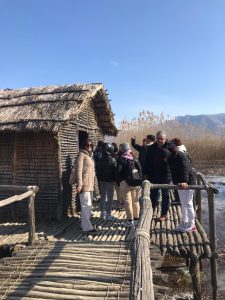
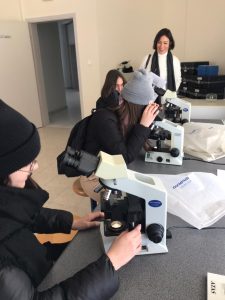
A representation of the settlement has been created near the site, which attracts tourists from Greece and abroad. The representation includes models of huts that are built on wooden stilt platforms, which are situated in the lake and close to the shore. The huts are made of straw and clay. The huts also contain replicas of items found in the excavations, since the authentic items are kept in a nearby museum. Types of trees that were once part of the settlement’s natural environment were planted in the archaeological park and close to the model huts.
During the last day of the Erasmus project “Deep European CulTour”, the partners, used shadow play techniques, an alternative and flexible teaching tool and through cooperative interaction, had the opportunity to get an acquaintance with the Greek cultural heritage and mythology.
Specifically, the teachers and the students involved in the workshop had the opportunity not only to attend a body and figure shadow play based on the Perseus and Andromeda myth (performed by Greek students) but also to get directly involved in the project by performing their own shadow play, as well.



Greek students cooperated on a myth realization, created their own costumes, figures and script and performed their own plays. Also, teachers and students from Italy, Romania and Poland worked on four other Greek myths (Talos, Theseus and Minotaur, Icarus and Daedalus and The Lernean Hydra), were given useful instructions and information, shadow play figures and material, were divided into teams, and… the outcome was amazing!!!
They worked in the context of a team, cooperated for 3 days, used the given material, exchanged useful ideas and thoughts, and had the opportunity to get acquainted with Greek myths and Greek heritage. Afterwards, the teams presented their own play and had the chance to watch other teams’ work as well.
In the end, teachers and students expressed their own thoughts and feelings about the shadow play and all agreed that learning is fun and it’s fun to learn.
The partners and the involved participants got acquainted not only with a useful and flexible teaching tool, the shadow play technique but with several ways of using this technique through cooperative interaction in class, as well. (After the mobility in Greece, the Polish team used this technique at their own school).
Also, the participants had the opportunity to cooperate on Greek myths, exchanged ideas and thoughts about them and were informed about Greek mythology and heritage, information that can be used while teaching and promoting European culture and friendship.

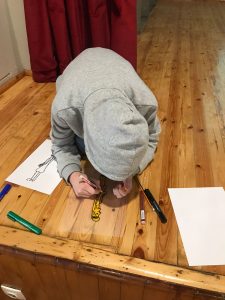

For the art workshop that took place as part of the program Erasmus, the medium of shadow theatre was chosen, specifically Karagiozis as it connects visual arts with folk art and tradition, theatre and writing. The children worked and created figures in shadow theatre as part of the workshop. The workshop started with an informative presentation of the story of the shadow theatre. The students came into contact with Greek folk art and parallel to the folk art of other cultures, of different eras-from antiquity to the present day-, as well as with various materials such as transparencies, paints, fabrics but also the structure of light and shadow. Then they developed their skills and their imagination when it comes to construction. During the workshop, the children were inspired by the values, ideas and aesthetics of our culture as well as other cultures while incorporating elements of their own traditions. Thus they seemed to understand its meaning even better multiculturalism through the history of people something necessary and fruitful for modern multicultural schools and the gathering of different students’ nationalities. Then a goal that was evident throughout the workshop what was achieved was for the children to communicate, help each other and express themselves emotionally through the artistic process. The action aimed at an innovative artistic creation where children can freely create their own, even modern characters and not necessarily reproduce intact the figures of the past. With the support of teachers, they had the possibility to develop their ideas and imagination, admire the common people’s art and be inspired by it.
Also, a robotics workshop was offered to teachers to explore various ways that precipitation can change over seasons and how water can cause damage if it is not controlled. Our aim was to inspire educators who would like to produce similar applications and to provide them with ideas and guidance.
Teachers created and programmed a floodgate to control the water level of a river using Lego WeDo 2.0 for education. Teachers grouped together in groups of two and co-drew a river the floodgate that opens and closes depending on the weather so a boat can navigate. From the educational range, LEGO® Education, LEGO® Education WeDo™2.0 permitted teachers to implicate themselves in a playful and interactive way in adapted scientific projects: engineering, technology, and cording! The goal was to give teachers confidence thanks to a proper learning program, which will get them to ask themselves questions, define problems and create by themselves with their hands and mind their solutions.



Διαβάστε Περισσότερα


























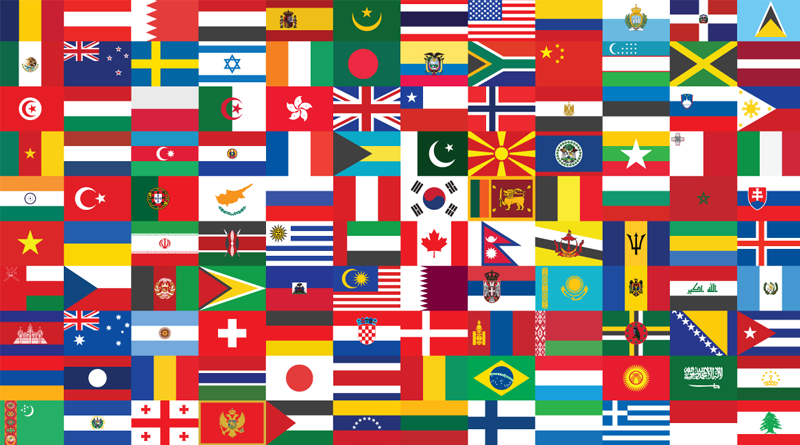


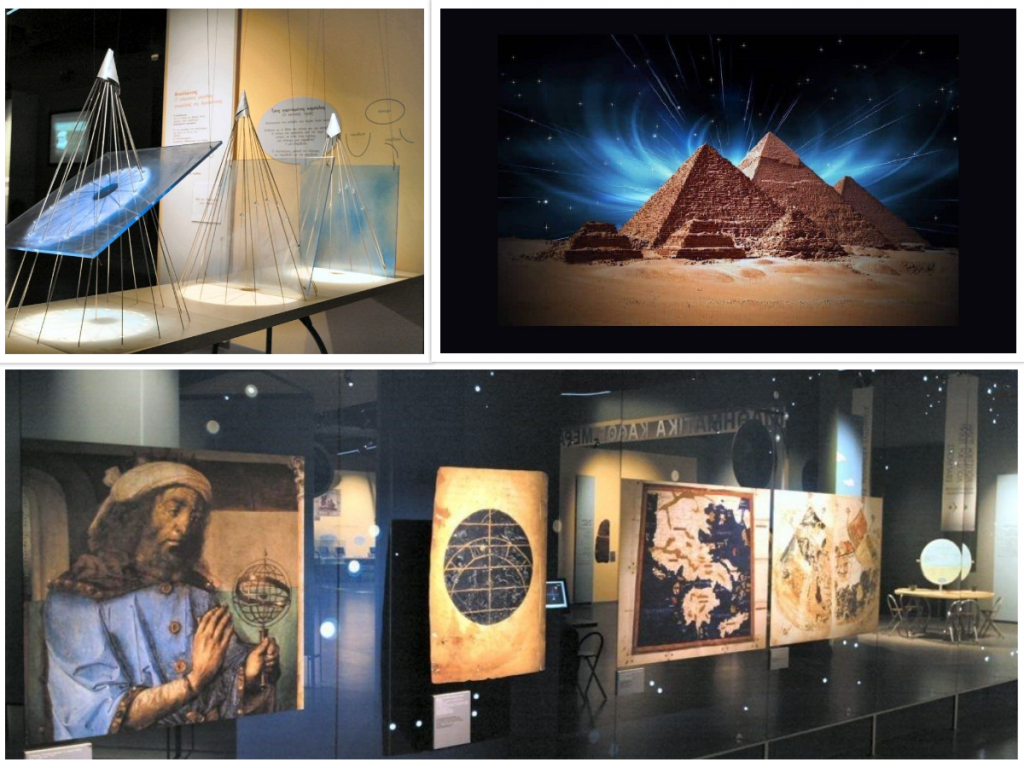

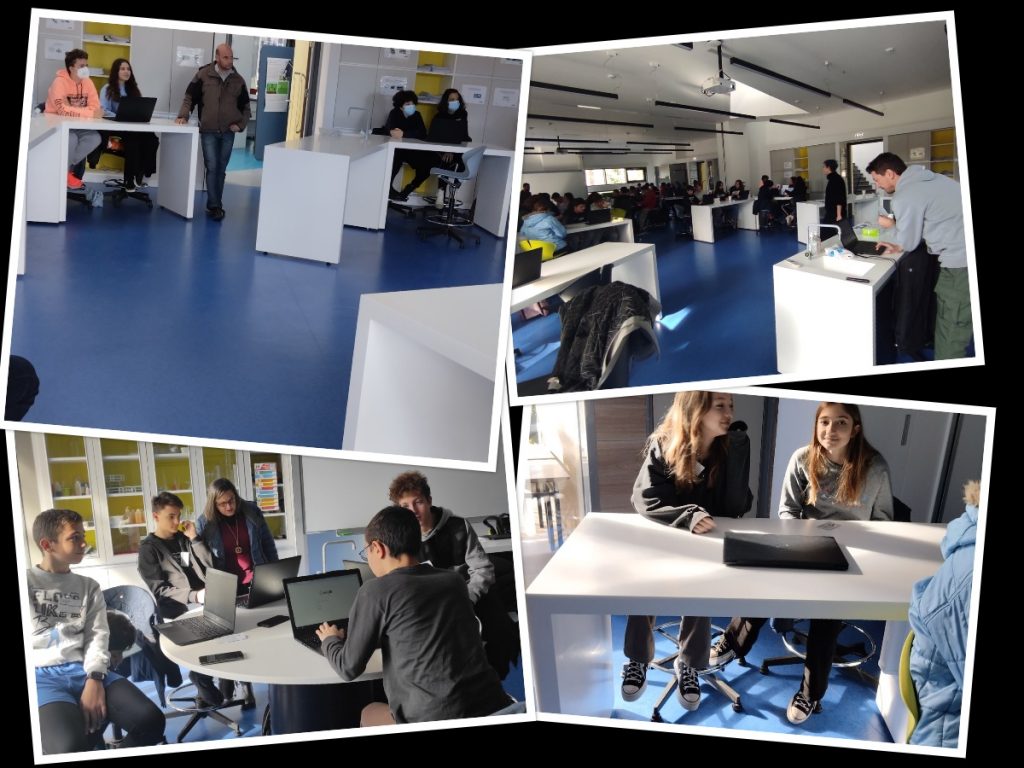
Recent Comments